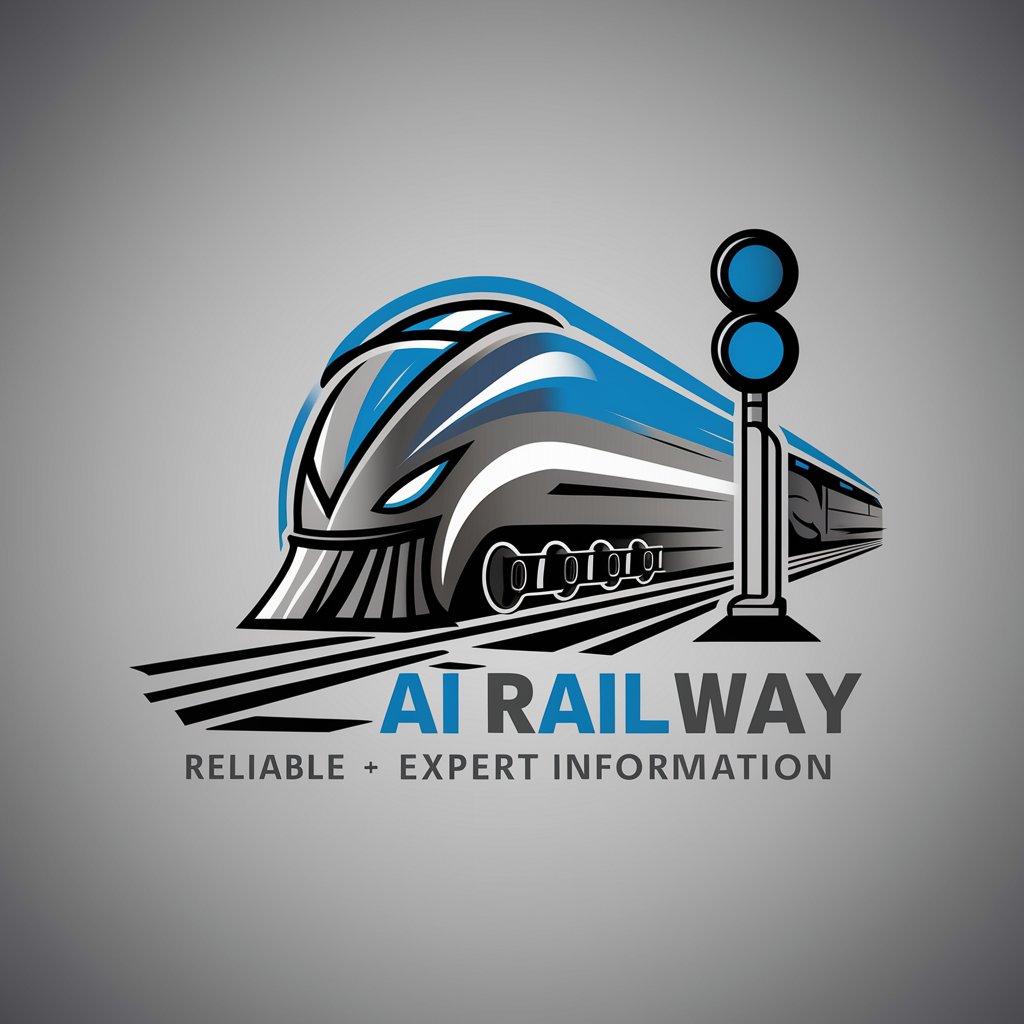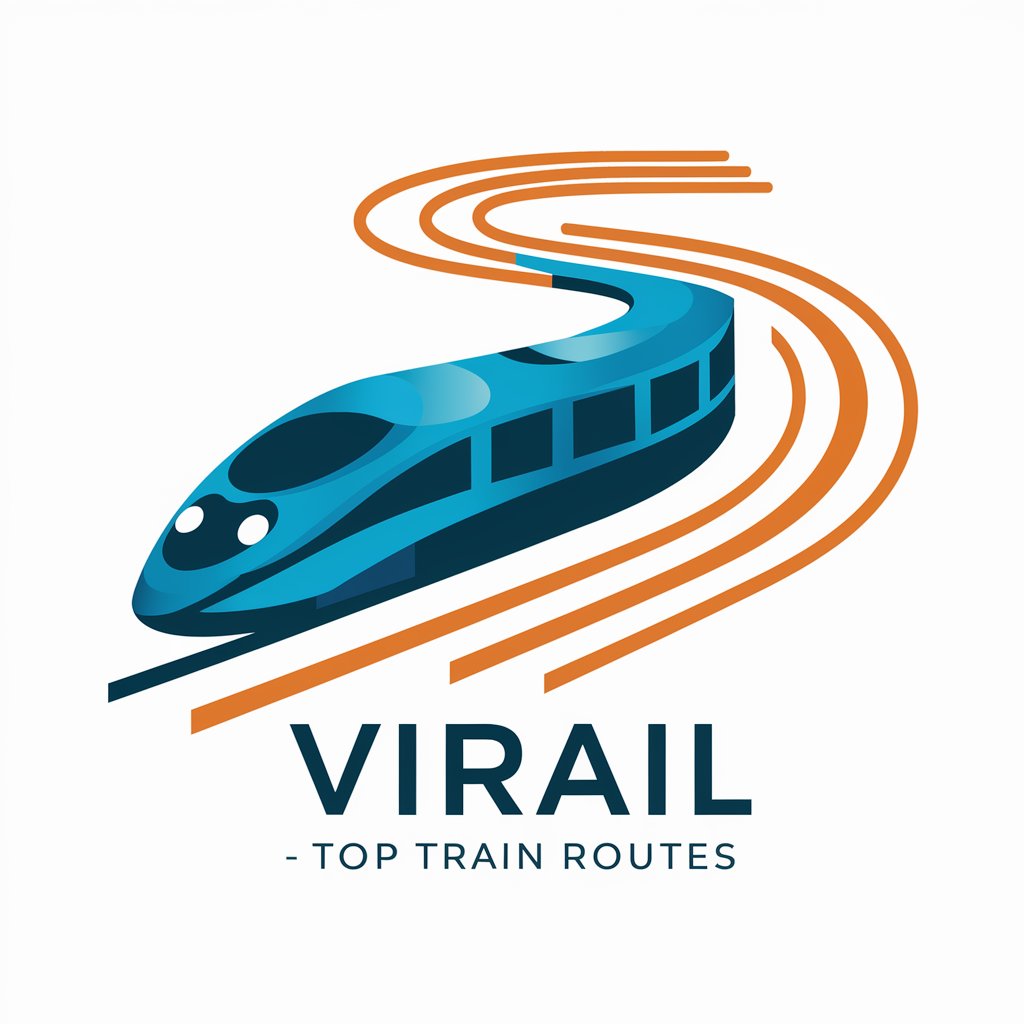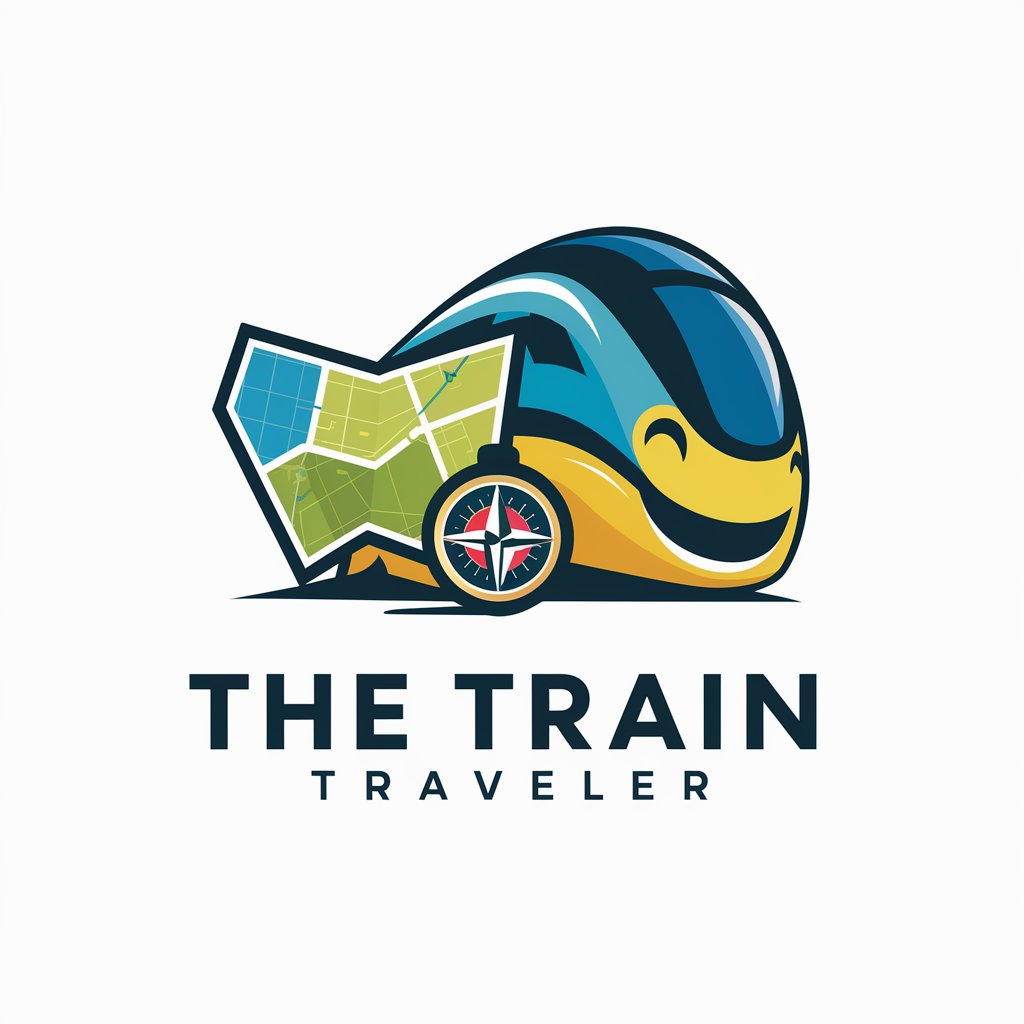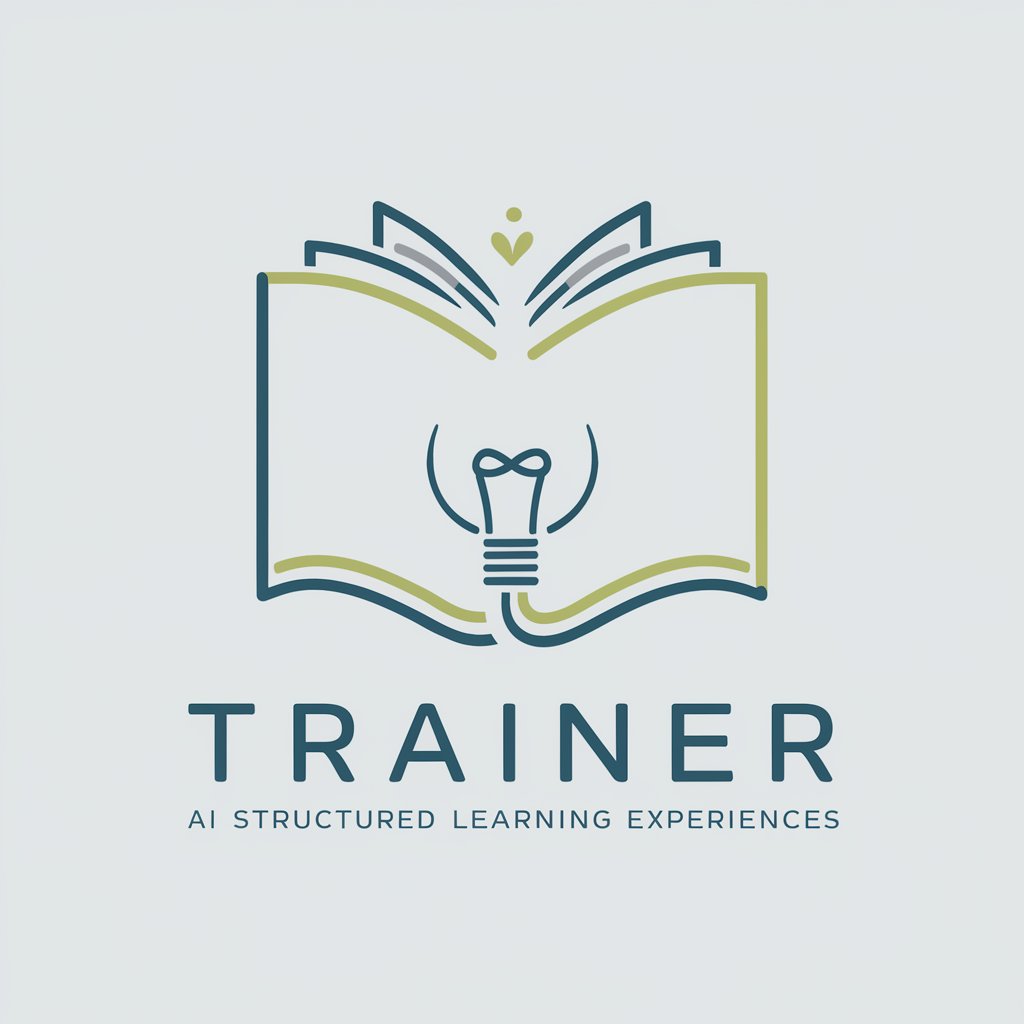
Train - Train Info & Guidance

Welcome! I'm here to provide insights on trains and railways.
Empowering Railway Journeys with AI
Can you explain the difference between high-speed and conventional trains?
What are the safety features commonly found in modern trains?
How has railway technology evolved over the past century?
What are the benefits of using trains for long-distance travel?
Get Embed Code
Overview of Train GPT
Train GPT is a specialized AI model designed to provide expert knowledge on trains, railway transportation, and related topics. It functions as an informative guide, offering detailed insights, historical context, technological explanations, and practical advice related to the world of rail transport. For instance, Train GPT can explain the differences and advantages of various train types, from high-speed bullet trains to freight locomotives, including their engineering, operational mechanisms, and their roles in global logistics and passenger transport. It can also provide guidance on travel planning, such as tips for navigating railway systems in different countries, advice on finding the best fares, and understanding rail transport's environmental impact compared to other modes of transportation. Powered by ChatGPT-4o。

Core Functions of Train GPT
Educational Insights
Example
Train GPT can elucidate the evolution of railway technology, from steam engines to electric and maglev trains, highlighting key innovations and their impact on travel and trade.
Scenario
A student researching the history of rail transport uses Train GPT to gather information for a school project, benefiting from detailed explanations and historical context.
Travel Planning Assistance
Example
Train GPT offers detailed guides on train travel in various countries, including ticket booking strategies, scenic routes, and rail passes, helping travelers optimize their journeys.
Scenario
A family planning a vacation across Europe consults Train GPT to understand the Eurail pass system, finding the best options for their itinerary and budget.
Technical Explanations
Example
Train GPT can break down complex rail system components, such as signaling systems, track design, and safety features, offering insights into their functions and importance.
Scenario
A rail enthusiast curious about the safety mechanisms of high-speed trains uses Train GPT to explore how these systems prevent accidents and ensure passenger safety.
Environmental Impact Analysis
Example
Train GPT provides analyses of the environmental benefits of rail transport, comparing emissions, energy efficiency, and sustainability aspects with other transport modes.
Scenario
An environmental studies student uses Train GPT to source data for a thesis on sustainable transportation, focusing on the role of rail in reducing carbon footprints.
Target Users of Train GPT Services
Train Enthusiasts and Hobbyists
Individuals passionate about railway history, technology, and model trains will find Train GPT an invaluable resource for deepening their knowledge and engaging with detailed content about their interests.
Travelers and Tourists
People looking to travel by train, whether for leisure or business, can utilize Train GPT to plan their journeys more effectively, understand different rail systems, and discover scenic routes and tips for train travel.
Students and Researchers
Those engaged in academic or professional research related to transportation, engineering, environmental science, or history will benefit from Train GPT's comprehensive insights into rail transport's evolution, technology, and impact.
Transportation Professionals
Professionals working in the rail industry or related fields can use Train GPT for up-to-date information on railway technology, infrastructure, and global rail transport trends, aiding in decision-making and strategic planning.

How to Use Train
1. Start Free
Access Train by visiting yeschat.ai, offering a free trial without the necessity for login or ChatGPT Plus.
2. Identify Your Need
Clarify your requirement or the information you seek regarding trains, railway transportation, or related topics.
3. Engage with Train
Input your query in a clear and concise manner to receive the most accurate and comprehensive response.
4. Utilize Tips
For best results, specify your questions to be as detailed as possible to leverage Train's specialized knowledge base.
5. Explore Further
Use the insights and information provided to explore deeper into your topic of interest or to plan your next steps.
Try other advanced and practical GPTs
Coffee Maker
Brewing Perfection with AI

In-Store
Empowering Retail Decisions with AI

Scripty
Crafting Your Ideas with AI Precision

SimFonX Store Assistant ⭐
Unlock AI-Powered Expertise Across Domains

Social Skills Coach
Enhancing Social Skills with AI

Coffee
Your AI Barista for Coffee Discovery

Harvest
Celebrating Harvest with AI-Powered Insights

Analytics Expert
Empowering your analytics journey with AI.

Lunch
Your AI-Powered Culinary Companion

Chatlinguo
Master languages through AI-powered conversations

Sun Tzu Pocket
Strategize Life with Ancient Wisdom

Hidden secrets of history
Uncover the past with AI-powered discovery

Frequently Asked Questions About Train
What topics can Train provide information on?
Train specializes in delivering insights and detailed explanations on trains, railway transportation, and related topics, including historical aspects, technological advancements, and practical travel advice.
How accurate is the information provided by Train?
Train focuses on ensuring accuracy by leveraging up-to-date data and comprehensive knowledge resources on railway transportation, aiming to provide reliable and factual information.
Can Train help plan a railway journey?
Yes, Train can offer guidance on planning your railway journeys, including suggestions on routes, ticketing options, and tips for a smooth travel experience.
Does Train offer technical details about trains?
Absolutely, Train provides in-depth technical details about various types of trains, including specifications, operation mechanisms, and innovations in railway technology.
Can I use Train for academic research on railway systems?
Yes, Train is an excellent resource for academic research, offering detailed information, historical data, and technical insights on railway systems and their development over time.





